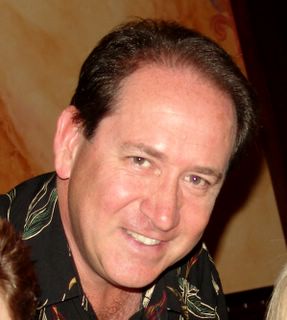How to Teach a Pediatrician to say F*ck You Nicely
OK sorry for the potty-talk. Barbara Loe Fisher of the National Vaccine Information Center doesn't put out newsletters with that kind of language, but the title of this entry is what she's telling us the American Academy of Pediatrics (AAP) wants to do.
In another fit of pique aimed at the growing number of vaccine-educated parents questioning pediatricians about the safety of vaccines, the largest private medical organization representing medical doctors treating children - the American Academy of Pediatrics (AAP) - recently announced to its membership that it will fight doubting parents in their offices, in the media, on the internet and through a partnership with other wealthy and powerful organizations funded by a pharmaceutical industry committed to doing the same thing.
Unless there is an assumption of adversarial confrontation between parents and their childrens' pediatricians, why would the wording be so strong? What do the kindly children's physicians have to gain by being so heavy-handed? Essentially, having been brainwashed to believe that an unvaccinated infant is an incomplete human being, the doctor has his honor and soul to save, in his own eyes.
The brain washers--pharmaceutical vaccine manufacturers--have nothing like that on their agendas: their sole motivation is profit, and we're talking almighty mountain-moving profit, because vaccinations involve everyone's children, and that's a lot of shots!
In case you're confused by the mixed messages of doctors and drug companies--by that I mean that you or a family member or friend just took a pill that saved a life--let me explain the dichotomy. Take the case of lipitor, the cholesterol-lowering statin. This one little pill is worth $12 billion dollars a year to it's manufacturer, Pfizer Inc. It really does lower blood cholesterol levels which statistically has been proven to lower the incidence of heart attacks in the population. It can have pretty bad side effects on the liver and muscle, plus unknown time-latent problems on the human system that haven't popped up yet due to the short venue of lipitor's existence on the market. I can't take lipitor, for instance, because is really screws up my liver so I use a different, generic, statin.
Again we have all been brainwashed that the end--lowering blood serum cholesterol--is worth any means--taking a drug with possible adverse side effects, because the risk is worth the reward. I am not sure, as I said above, that we know all the risks, but the issue here is again not medical or public health--it's the money, honey.
Any company with a $12 billion dollar cash cow that is under threat of losing that income will do anything to prevent that from happening. I'd like to say "almost" anything, but I think I'd be understating the truth.
Pfizer Inc. and India's Ranbaxy Laboratories Ltd. agreed to keep copies of the cholesterol pill Lipitor off the U.S. market an extra 20 months, protecting $12 billion in sales for Pfizer.
Under the terms of a lawsuit settlement, Ranbaxy won't sell a generic version of Lipitor, the world's top-selling drug, until November 2011, New York-based Pfizer said Wednesday.
Analysts had projected Ranbaxy would enter the market when the main patent expires in March 2010, though Pfizer sued to block it until 2016.
The deal buys Pfizer Chief Executive Jeffrey Kindler time to find drugs to replace as much as $12 billion a year at risk when Lipitor copies reach the market. Investors doubt the former lawyer can offset losses by boosting sales of current products, cutting costs and speeding drug development. [L.A. Times 6/19/08]
You see no mention in this article of cost savings to consumers by having a generic alternative to Lipitor, or even saving the insurance company benefit payout for this high-priced prescription drug, although I highly doubt that price savings would be passed along to health insurance premium payers.
When I paid for lipitor it cost around $100 for a 30-day supply. My co-pay at the supermarket down the street for generic-equivalent drugs is $4.
One might argue that the cost of R & D on new drugs warrants the high mark-up of sales in the marketplace. It's true the cost of bringing a new drug to market is in the hundreds of millions of dollars for development, testing, and advertising. But 50% of the cost of development of new drugs comes from government grants--free money--which the drug companies would rather not publicize too much in case you and I catch on to the game.
So, getting back to the dichotomy--in the midst of developing any new drug that can add to the bottom line of a drug company, researchers stumble onto helpful and life-saving medicines as well as harmful ones. The difference is that when a drug company like Pfizer is about to lose its holy patent rights on lipitor, it scrambles to produce a "me-too" substitute, or combine a blood-pressure-lowering drug with a cholesterol-lowering drug, in order to put another high-priced patent drug on the market--that's when the public health issue becomes confused, commingled, and subsumed, by the money-mongers, and their means to the end is the same--dollars.
